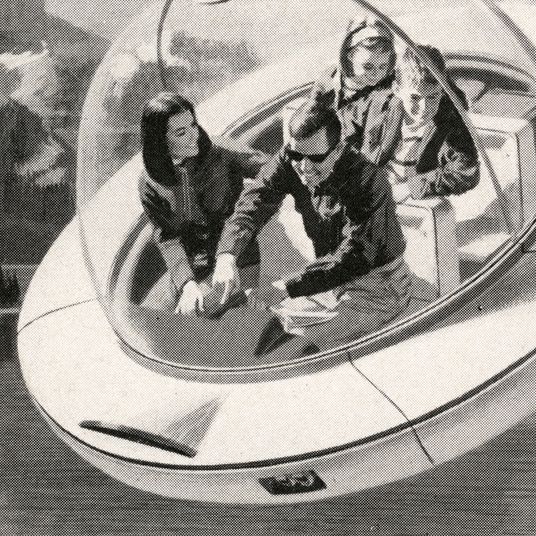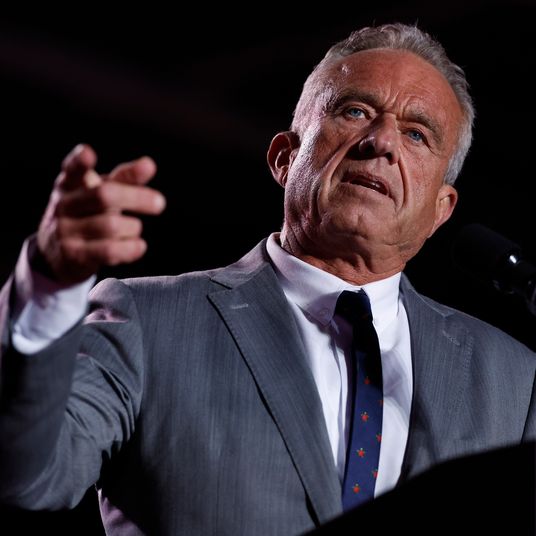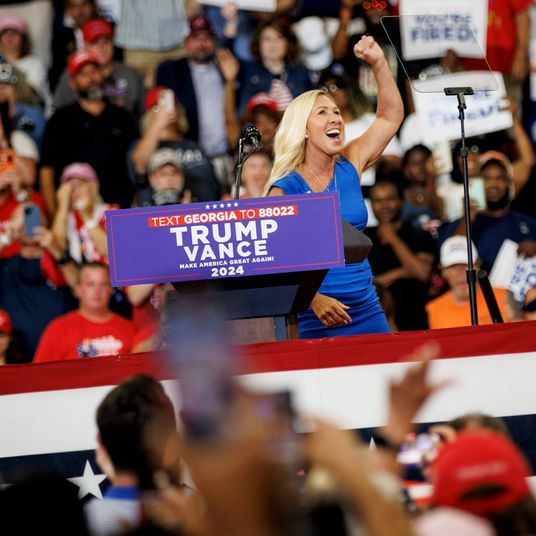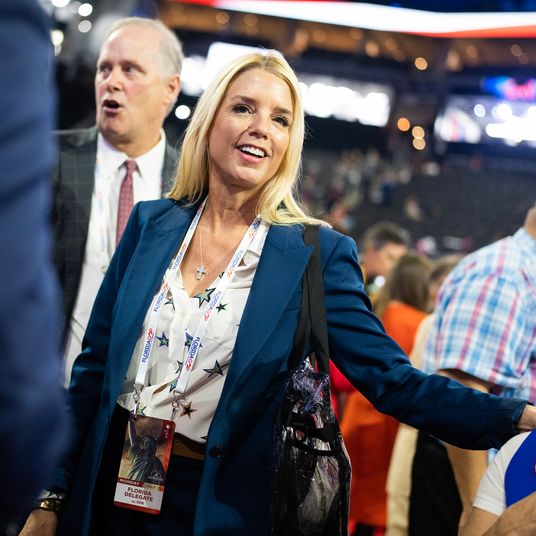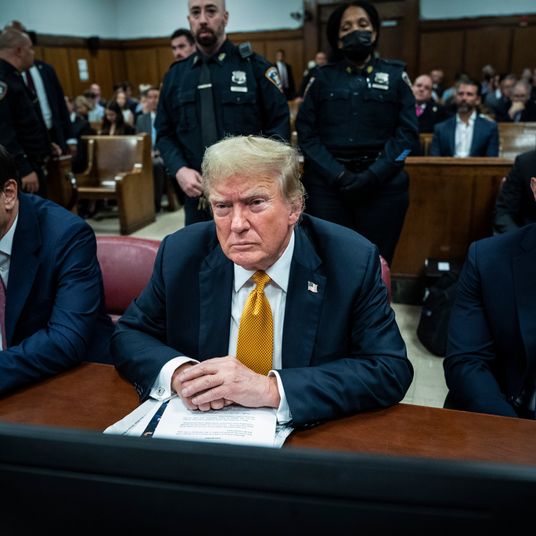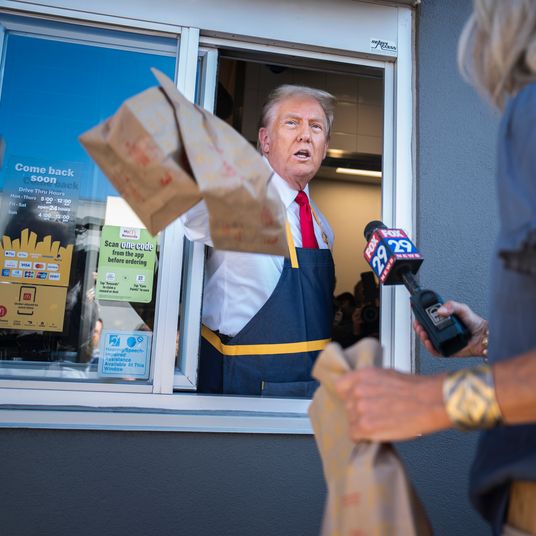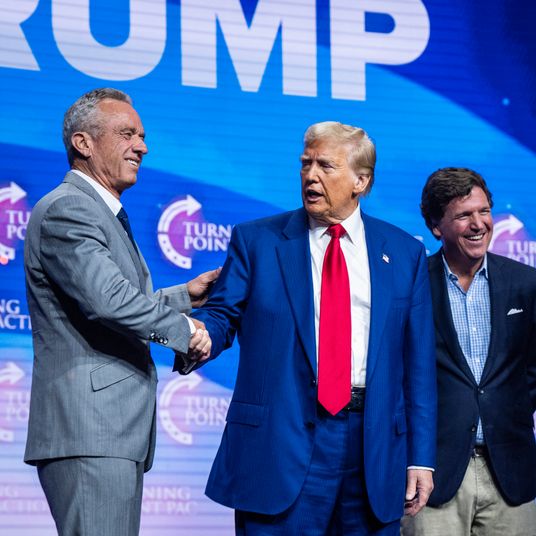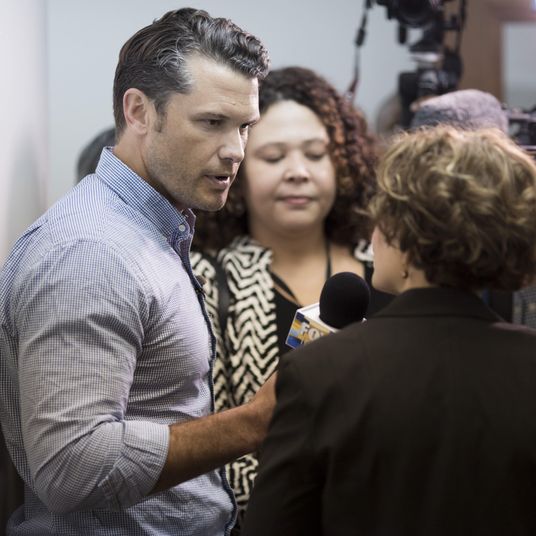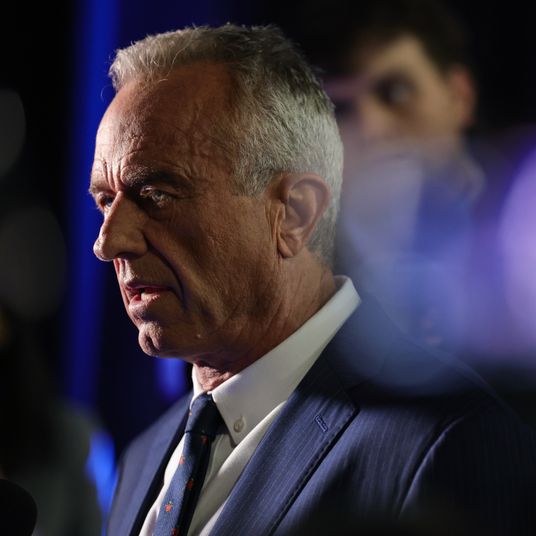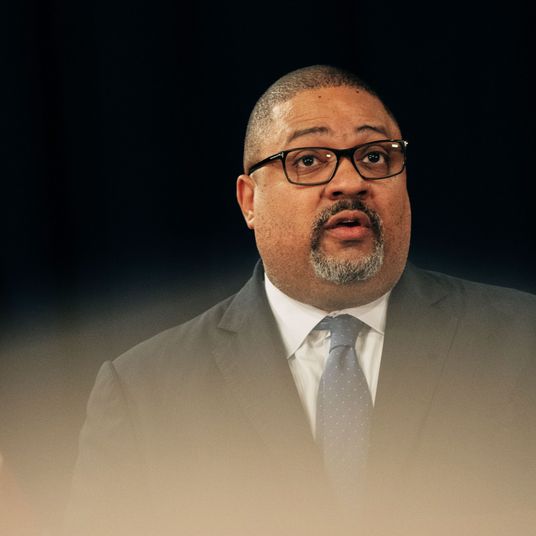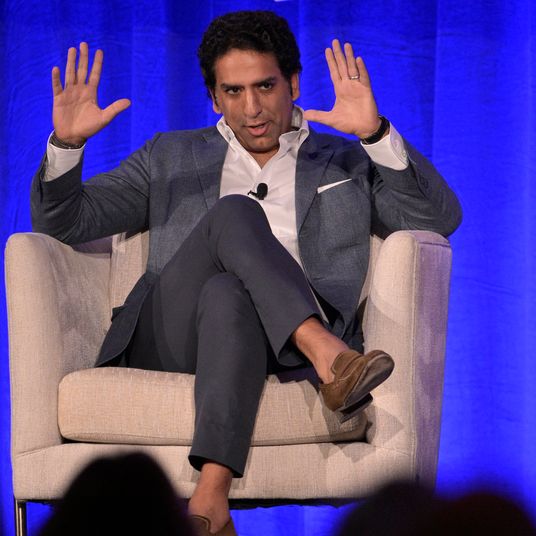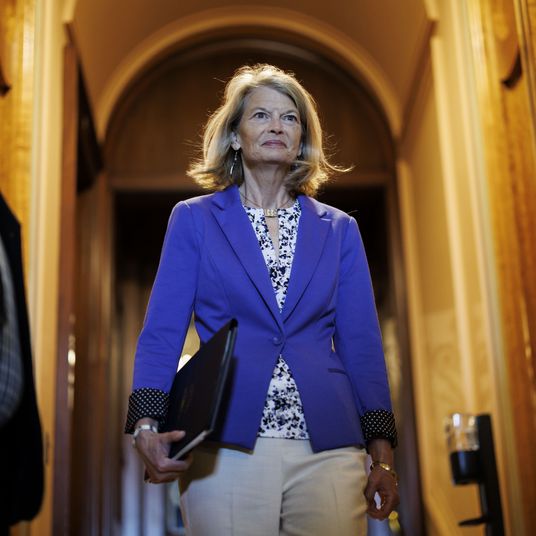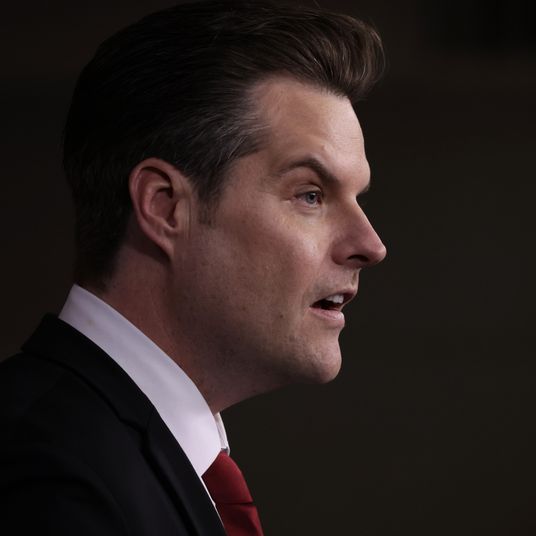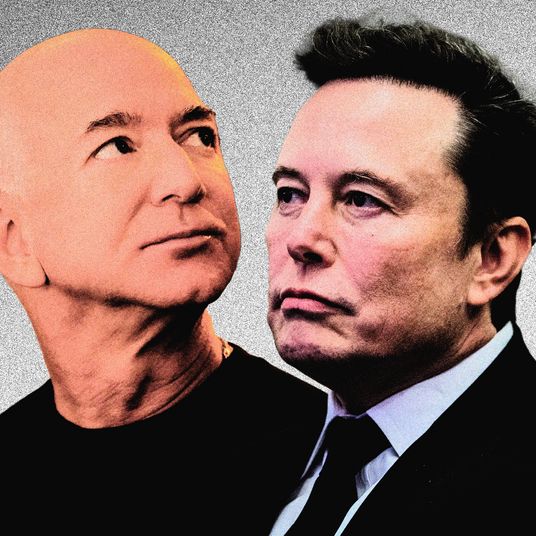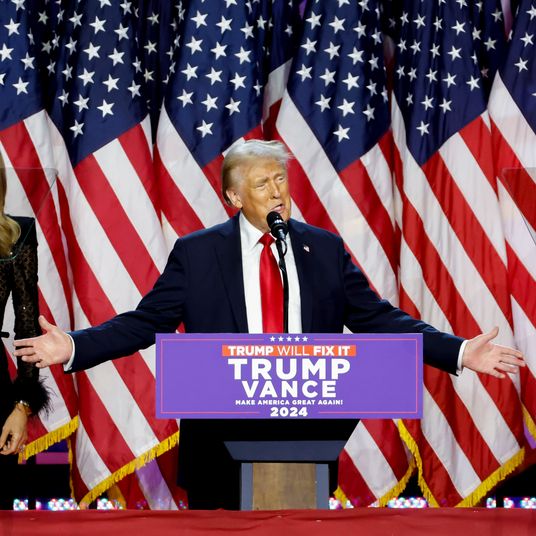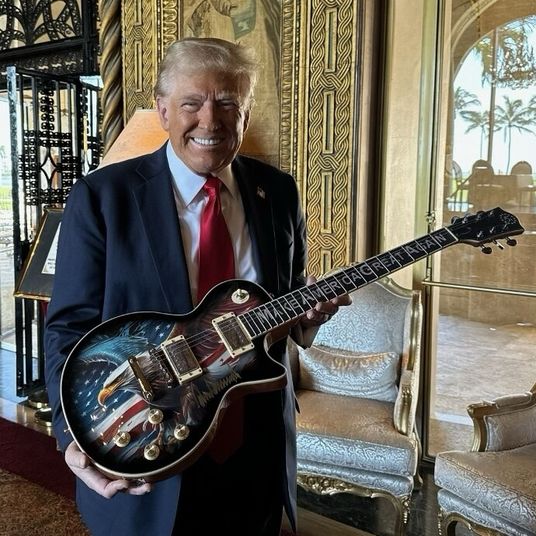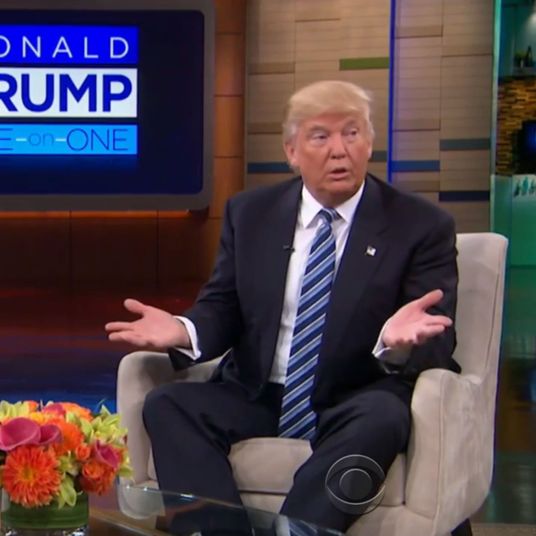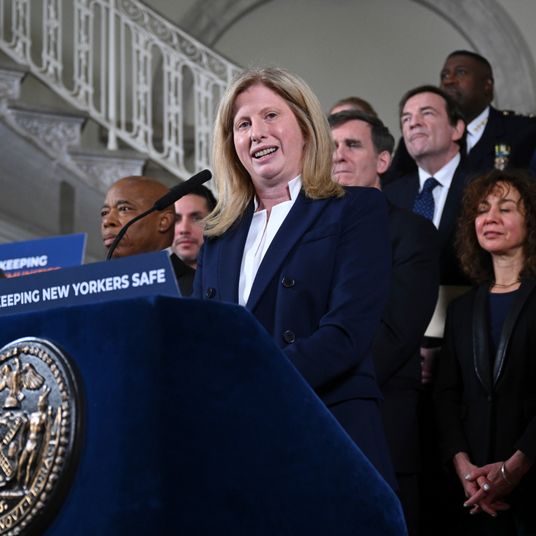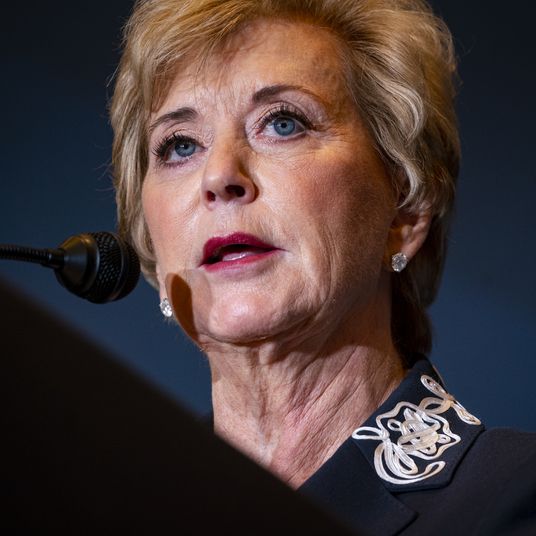
Donald Trump won a resounding victory over Kamala Harris on Tuesday, and unlike in 2016, this one wasn’t a shock. What was stunning was the depth of his gains all over the electoral map. Trump’s huge improvements relative to 2020 raised a host of difficult questions for Democrats, and Republican hopes of a new electoral coalition. To get a sense of Tuesday’s implications — and whether it could ever have gone any differently — I spoke with Amy Walter, publisher and editor-in-chief of the nonpartisan Cook Political Report.
We’re only a few days out from this election and don’t have complete data on it, but what jumps out at you so far?
If I had brought back a political scientist from 40 years ago who had not been paying attention to this election at all and just gave them a top-line number — if I said the incumbent party is deeply unpopular, the president has a 40 percent job-approval rating, people are upset about the economy, almost 70 percent think the country is on the wrong track — and asked “Do you think the incumbent party would win?” That person would say “Of course not.” That is a recipe for loss.
But there are two things that kept this from being an obvious and predictable loss for the incumbent party. First was that the incumbent party switched its nominee at the very last minute. The second is that the challenger wasn’t your typical challenger. This wasn’t an outsider who nobody knew anything about — this is somebody who is both an incumbent and a non-incumbent at the same time, and he brought with him all of his baggage, too. That’s what always made this a little bit tricky, and it also is why the Harris campaign was always counting on this race being more about the ex-incumbent than the current incumbent. It’s why they talked about turning the page and that he’s unhinged, because if this were a race that ultimately came down to “Do you think the economy is good right now? Do you think the economy was better when Trump was in office?” — that’s a race she could never win.
Ultimately, it seems like that’s what happened — voters were willing to say, “Yeah, I know this guy, I don’t necessarily like him, but he’s going to get the economy back.” Which, at its most basic, is what every campaign is about.
It’s the economy, stupid?
It’s the economy, but also, of the last ten elections, so going back to 2006 — every single one of them, with the exception of 2012, has been a change election. We have gotten used to people being like, “Well, I don’t like the party that’s in power. Let’s kick them out, let’s bring the new people in. Oh, the new people didn’t do it either. Punish them.”
So fickle, the American people.
We want what we want. But because we’re so polarized, you come in as the winning party knowing that a good 47, 48 percent of the electorate is never going to give you credit for anything. You could solve cancer, you could do the most amazing things, and that other party will find a way to say, “Yeah, but they’re still terrible.” That makes it really hard, too.
I think the other thing to appreciate is, for those of us who live our lives thinking about politics, the people who decide elections are the people who live their lives not thinking about politics. And they are basing their decision on what their day-to-day lives look like. That was always the challenge for Harris and why you saw her and her campaign and the outside groups spend so much time talking about the economy: “I’m going to lower prices, I’m going to take on the pharmaceuticals, I’m going to take on the price gougers.” I think a lot of voters said, “Okay, that’s cool and everything, but aren’t you the party in power right now? Shouldn’t you have already done that?”
That fits in with one thing Democrats are taking some comfort in, which is that this pattern has been repeated throughout the world recently. Incumbent parties up for reelection this year have almost all gotten their asses kicked, usually worse than they just did.
And that’s what Democrats can also look to. But as I said, it goes back to even before that. When I first started covering politics and getting involved in politics in the early 1990s, and Republicans took control of the House in 1994, that was the first time in 40 years that the House had flipped. Forty years — and now it flips every ten minutes.
Many Democrats are angry that Biden didn’t drop out of the race after the 2022 midterms. Democrats would still be running a candidate from the incumbent party in that case, of course, but maybe it wouldn’t have been somebody directly tied to the administration. What kind of difference do you think that could have made?
There’s a reason, I think, that people who are really into things like fantasy baseball are really into politics. Because you can choose your own adventure. “What if they hadn’t traded X player? What if this thing hadn’t happened in the seventh inning? Do you think they could have won that game?” That’s what politics is a lot like too.
Fundamentally, it does come back to Biden and the administration. He’s an unpopular president, and an unpopular president doesn’t win reelection. The only thing possibly preventing the unpopular president from losing is that he’s challenged by a more unpopular candidate. Where Trump fits into this is that, yes, he’s still unpopular. But — and we noted this before Biden dropped out and then it started happening again in October — in retrospect, people think of Trump’s presidency more favorably than they did even when he was president. They may have not liked Trump and what he stands for or what he does, but as they put it in context now, thinking, Well, compared to what we have now, was it better or worse? — they say, “Well, at least stuff was less expensive.”
And the only way you counter that is if you have a candidate on the Democratic side who’s not part of the incumbent party. They still might be burdened. If Biden drops out, and Gretchen Whitmer wins a competitive primary, she’s still part of the Democratic Party. But she’d have an easier time separating herself from the Establishment by saying, “I’m in Lansing, Michigan. I had nothing to do with any of this. I’m an executive, and had to make other decisions.” And if we’re talking about turning the page, that’s a more clear delineation than a sitting vice-president.
Which points to Biden possibly having made a big mistake.
Yeah. I just think it’s really hard to say that Harris could have done anything differently. She needed to show that she would make this incredible break from him, but what would that be? And would it be seen as credible? If the sitting vice-president comes out and goes, “All along, I thought this was just dumb and I would’ve done it so differently” — do you get a benefit for that? Or do people go, “Gosh, this is a real flaky person. She’ll just do whatever she needs to do to get ahead. She’ll say ‘yes’ to Biden, but then she’ll say something else when he’s not in the picture.”
From what we know so far, turnout has been quite high. My impression is that it wasn’t so much that anti-Trump people didn’t show up and more that some of them were converted to Trump. They did show up, but they just voted differently. Is that right?
Yeah, I think you’re right. We did this thing called the Swing State Project with a Democratic polling firm and a Republican polling firm. I think we had three waves of polls in the swing states. And one of the questions we asked was “Thinking about Donald Trump, do you like him and you like his policies, do you not like him and don’t like his policies, or do you not like him but do like his policies?” And to me the most interesting thing is that the people who said that they liked him — like those are the ride-or-die Trumpers — are only about 35 percent. The people who don’t like him and don’t want anything to do with him are 47 percent. And then there is that 19, 20 percent that don’t like him but like his policies. And the election was really all about those people. Because if all Harris did was get out the antis, then you’re at 47 percent. If all Trump did is get out his base, then he would be stuck at 35 percent.
So you had to get people who don’t like him but do like his policies. And what’s notable to me is that she ended this race in all of those swing states, basically at that 47, 48 percent number. So he won over those people who were not necessarily in love with him. You can’t say that they’ve been converted to be pro-MAGA or whatever, but you can say this was always what was holding them back was if he had been a normal challenger, if he hadn’t been Donald Trump, they would probably have been with him all along. We don’t know that for sure. But they’re more conservative leaning. They are just, as a whole, going to be open to the policies that Trump is proposing and kind of a conservative view of the world.
And this may include some of this new coalition of Latino men, which seems to be the big demographic people are talking about now.
That was exactly the group of people that I noticed in our September poll. The biggest cohort when looking at the demographics of the “I don’t like him but like his policies” category was Latino men. And so they were always kind of sitting there in the “What’s the bigger risk for me?” category. Is it having another, as Harris would say, four years of unhinged behavior and no guardrails and all the angry divisiveness? Or maybe getting the economy better?
And that was always the problem for Harris. How do you make those people switch? I think this is why abortion looked so strong as a way to get those people over to Democrats because they are pro-choice. And it just wasn’t enough of a factor.
It may also present some real warning signs for Democrats if these people have fundamentally conservative views on other issues and are concerned with Trump’s personality more than anything.
Exactly. I think Democrats have dined off of anti-Trumpism to success in ‘18 and ‘20 and 2022. And look, it’s tantalizing because it gets you to 48 percent or 47 percent. But it doesn’t get you all the way.
For a long time, there was an idea that high turnout benefited Democrats. That’s been turned on its head to some extent because Democrats have recently done pretty well among high-propensity voters in midterms and less well among low-propensity general-election voters. Do you see signs that the latter group came out for this election the way the Trump campaign and the likes of Elon Musk were hoping for?
This is imprecise, so we’re going to have to wait for our friends at Catalist and Pew to give us the data. But we do have the AP VoteCast. They asked people whether or not they had voted in 2020. And Harris won the “Did you vote in 2020” maybe by three or four points, but the “didn’t vote in 2020” was basically 50-50. I don’t know that that necessarily answers the question of whether he brought in new people. And that’s also the national sample, so I’d have to look at the individual states and see what that looked like.
But I think what’s clear is that all this talk of “They don’t have a ground game and they’re going to lose because they can’t get these people out” — I had always been wary of that argument because what Donald Trump is able to do, and part of the reason he does better with low-propensity voters, is that he’s everywhere. If you are a House candidate or a Senate candidate, you’ve got to go and do the work on the ground because people don’t know who you are. Nobody is unaware of Donald Trump.
Another of the many things Democrats will have to spend time looking at is how they communicate with voters in an era of diffused media. In 2016, the Trump team really took advantage of sort of old technology, Facebook, to their benefit. And this year, between the podcasts and YouTube—I have a 17-year-old. I see how he sees the world through all of his algorithms and YouTube channels, and Trump’s everywhere on those things. And so this idea of “You’re going to go get young men by going to their front door” — no, you’re not. You’re going to go and talk to them through the mediums in which they live.
I wonder if this is going to prompt a whole rethink of advertising generally.
It is. Look, it’s not to say Democrats didn’t do that. It’s not to say they weren’t on TikTok. They had all of their influencers. But I think it’s hard for those of us who cover politics. If I didn’t have a 17-year-old son, I’d have no idea. I can’t research his algorithm in the same way I can research gross rating points or free media attention or Google searches. Your algorithm is unique to you, and what campaigns have a capacity now to do is to reach people in ways that none of us who cover politics can see.
The personalization of everything.
Exactly. We are going to talk, too, a lot about this Gen Z gender gap, and what that’s all about. And again, this is where it’s helpful to live with Gen Z. I just think the men and women, the boys and the girls, live in entirely different streams of information. It’s not just like this is all about the world of gender, but the information that they’re consuming — they’re on literally different planets. And that matters too. Because it’s one thing to say, “I’m going to advertise on NFL football or College GameDay, and I kind of know who I’m getting. I’ll get this percent men or this percent women if I’m on The View or whatever.” But when you get into Gen Z and how they’re getting their information, it’s even more diffused than that and harder to understand.
A lot of the talk after 2016 and ’20 was about systematic polling errors, especially in the swing states. I think there was less of that this time.
I think we did a really good job.
Yes. Having said that, I did notice that the polls were pretty much all off in one direction. They overestimated Democratic support in the presidential election slightly, and a bit more in Senate races. For instance, In Pennsylvania, Bob Casey’s probably going to lose, and he had a small but durable lead in almost every poll. Jacky Rosen’s barely going to win in Nevada, and she was up significantly in many polls. What do you think is going on there?
I have to say that I actually think the polls were right on and part of the reason that no one really should have been surprised by what happened on Election Night. When it comes to the Senate polls, we’d been writing about this for a while now — that what we saw over the course of October was that as those Republicans got better known and less frequent voters who were definitely Trump people were cluing into the election, their numbers got better and better. And the whole question was, can those individual candidates outrun the top of the ticket? At the end of the day, Elissa Slotkin in Michigan, Tammy Baldwin in Wisconsin, Ruben Gallego in Arizona, and Jacky Rosen in Nevada will have done what the poll suggested they were going to do, which was to be able to outrun the ticket, which is kind of remarkable in an era where up until now, only one person’s been able to do it. And that was Susan Collins in 2020. Even if it’s going to be half a point in Michigan and whatever it ends up being in Arizona, the polls were still able to capture something that was happening, where voters, even if it was just a teeny fraction of voters, were willing to split their ticket. In some cases it was by a bigger margin in the polls, but as I said at the very beginning, I think the polls got it exactly right. These races were all within the margin of error.
For a while, many of them were around 48-40 in favor of the Democrats. So there was a question of the other 5 to 7 percent of people.
And that was the Republican argument all along, which we agreed with — we put those into “toss-up” for that reason. So even if Casey loses, he still will have done exactly what the polls said: outperformed the top of the ticket by two to three points.
And the polls were right about Colin Allred and Texas and Jon Tester in Montana too. They outperformed Harris significantly. They just are in deep-red states.
Correct. But that was always the challenge. Can Sherrod Brown in Ohio outrun her by ten points? And could Tester outrun her by 20?
Not possible.
No.
Collins is the only one. Biden won Maine by nine points in 2020, and that’s the outer limits of what’s doable.
And it also really helps to be in a really parochial small state. And for a while, Montana was that parochial small state. And I think what really hurt Tester is that that state has so much growth that it’s now made its politics much more nationalized. Susan Collins can be a Maine Republican because so many of the people who live there have lived there forever. And they’re like, “Well, we don’t like Trump, but that’s not Susan Collins. You can’t make me believe that Susan Collins is like him.” And for a while, Tester could get away with that too because they’re like, “Oh, he’s Jon Tester, he’s not Barack Obama.” But when you bring in all these new people, they say, “I’m going to vote the way I’ve always voted, which is I vote for a Republican, and he’s not a Republican.”
This interview has been edited for length and clarity.








